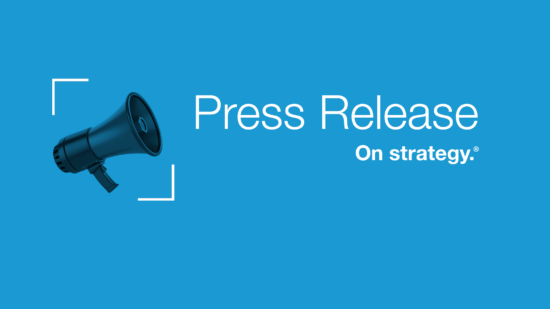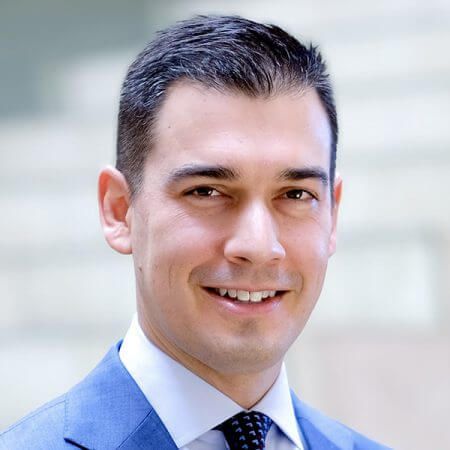
From China’s slowdown to trade tensions and AI speculation, discover the top risks shaping global markets in 2025 and how investors can prepare for potential disruptions.
For every asset class, in every cycle, a time comes when market participants can no longer argue assets are “cheap” based on their intrinsic or relative value. So, they pivot to rationalize lofty valuations, contending, “This time it’s different,” as the world has changed in some irrevocable way. The old rules and norms, the thinking goes, no longer apply. More often than not, though, the moment is an aberration and normality resumes.
The other common argument to keep the party going is that it’s not too late. There’s plenty of time and room for risk. As Chuck Prince, CEO of Citigroup at the time, told the Financial Times in July 2007: “When the music stops, in terms of liquidity, things will be complicated. But as long as the music is playing, you’ve got to get up and dance. We’re still dancing.” Just weeks later, the 85-year-old Wall Street investment bank Bear Stearns’ ability to operate as a going concern was called into question. And just three months later, Prince’s career ended amid massive losses at Citigroup.
While the magnitude of the financial crisis probably exceeded even the most bearish expectations, excesses and risks in the financial system were fairly obvious in hindsight. But even before the crisis broke out, at least a few seasoned investors understood that parties at some point always end. Perhaps it is instructive to reexamine historical periods of market turmoil as well as contemplate what might be the catalyst for the next one.
Lessons in History
It is instructive to look back at the catalysts for significant market corrections in modern history to see, with the benefit of hindsight, the sparks seen and unseen. These seismic events can provide insightful teachings on risk-taking and excessively risky behavior. The cyclical nature of investing shows that unchecked euphoria often precedes significant corrections.
The Biggest Drawdowns in Recent History
The causes of crashes are complex and multifaceted, although triggers for the crashes may vary. Speculation and economic bubbles can drive risk assets far beyond their intrinsic value, creating a bubble that eventually bursts and causes prices to fall sharply. Panic selling can also occur when events deepen uncertainty, such as wars, pandemics, or unexpectedly adverse economic data. Crashes are not merely signals but markets shifting from optimism to pessimism, prompting widespread selling. The anatomy of a crash reveals a combination of triggers.
Black Monday
Monday, Oct. 19, 1987, was the worst trading day in Wall Street history, as the Dow Jones Industrial Average plunged 22.6%, erasing over $500 billion in market value. Black Monday was a global wake-up call, riffling through exchanges and illuminating the interconnectedness of modern markets. The panic began in Asia and rolled westward like a tidal wave. As prices fell, automated program trading kicked in, triggering more selling. Portfolio insurance strategies, designed to protect against losses, accelerated the decline by automatically selling futures contracts as the market dropped.
Source: BloombergDomestic and international investors had been edgy prior to the crash due to several factors, including overvalued stocks, a weakening dollar, and rising U.S. trade deficits and interest rates. The catalyst? The federal government disclosed a larger-than-expected trade deficit before the selloff, and the dollar fell in value, sparking market volatility worldwide. Black Monday spurred several market reforms that remain in place today, including circuit breakers to pause trading during severe market declines, improved coordination between stock and futures markets, better communication systems between global exchanges, and strengthened clearing and settlement procedures.
Dot-Com Bubble
The explosive growth of the internet and digital technology during the 1990s drove a surge of tech startups – many with dot-com company names – that had little or no revenue but delusions of grandeur. Investors poured billions into these companies, driving stock prices to untenable levels, often based more on FOMO (“fear of missing out”) than on financial fundamentals. The Nasdaq Composite Index, which is heavily weighted with tech stocks, was at the center of the frenzy. The index rose almost 400% between 1995 and 2000. Interestingly, this bubble ran out of momentum as opposed to having a dramatic spark or watershed event. However, the Federal Reserve hiking interest rates was likely also a significant wet blanket over the market euphoria. The dot-com bubble burst in March 2000, when investors started panic selling after some companies failed to meet earnings expectations or ran out of cash. The crash wiped out about $5 trillion in market value, mostly from technology companies, leading to a plethora of bankruptcies among dot-com startups.
Source: BloombergThe aftermath of the dot-com bubble eruption saw a significant shift in the regulatory landscape. There was a pronounced demand for greater transparency and accountability, leading to the implementation of stricter disclosure requirements. Regulatory bodies focused on oversight and enforcement to curb the excesses, including the Sarbanes-Oxley Act, which overhauled corporate governance and financial practices; increased Securities and Exchange Commission (SEC) scrutiny; a global synchronization of regulations; and other consumer protection laws.
The Financial Crisis
The 2008 financial crisis was a systemic collapse that nearly brought down the global financial system. The runway for the crisis originated in the mid-to late-1990s when the Department of Housing and Urban Development began pushing the Federal National Mortgage Association (Fannie Mae) and Federal Home Loan Mortgage Corp (Freddie Mac) to make home loans more accessible to ‘subprime’ lenders (lower credit ratings and down payments than typically required). The leaks in the faulty credit dam started in March 2007, when Bear Stearns couldn’t cover losses from subprime mortgages. In early April, subprime lender New Century Financial went bankrupt. The collapse of subprime lender IndyMac, the government seizure of Freddie Mac and Fannie Mae, and the bankruptcy of Lehman Brothers followed in September 2008. The Dow Jones Industrial Average didn’t reach its lowest point (54% below its peak) until March 2009. It then took four years for the Dow to recover. While Lehman Brothers was the watershed moment, this crisis had been brewing for years, with many of the underlying problems foretold years in advance.
Source: BloombergThe Emergency Economic Stabilization Act was signed into law in October 2008 to bail out the banks by purchasing several hundred billion dollars in distressed assets. The crisis led to sweeping financial reforms through the Dodd-Frank Wall Street Reform and Consumer Protection Act, containing higher capital requirements for banks, regular stress testing of financial institutions, enhanced oversight of derivatives trading, and new protocols for dealing with ‘too big to fail’ institutions.
COVID-19 Pandemic
The most recent stock market crash occurred as the COVID-19 pandemic spread globally in 2020. The S&P 500 Index plunged 34% in just 33 days between February and March, making this decline the fastest in history. While the bulk of the market reaction came in March 2020, news of the virus was already circulating in the fourth quarter of 2019, with the virus confirmed in the U.S. and in Europe by January and the World Health Organization (WHO) declaring it a Public Health Emergency of International Concern at this time. The reaction function clearly did not coincide with the growing risk. The stock price drops were so steep that trading was suspended several times between February 12 to March 23.
Source: BloombergHowever, unlike previous crashes after which the market took years to recover, it rebounded quickly, reaching its pre-pandemic peak by May 2020. The S&P 500 was at record highs by August 18, and the Dow crossed 30,000 for the first time on November 24. Government stimulus fueled the rapid recovery, with the U.S. Federal Reserve (Fed) slashing interest rates and infusing $1.5 trillion into money markets. Congress also passed a $2.2 trillion aid package at the end of March.
Crash Insights
Market crashes are a natural part of financial market cycles and can present investors with risks and opportunities. While these highly volatile periods can cause instability, active investors need to maintain perspective and remain measured and grounded in the fundamentals. While regulations, circuit breakers, and Fed interventions have helped reduce the severity and duration of market crashes, they haven’t eliminated them.
Potential Catalysts Just Down the Road
Looking forward, we’ve identified several catalysts for a potential bump in the road that we are actively monitoring:
The China Slowdown
China’s economy has grown rapidly over the past three decades, with average real GDP growth rates of around 10% in the 1990s and 2000s. According to the International Monetary Fund (IMF), China’s growth was more than five percentage points higher annually than other countries’ growth rates between 1990 and 2019. The Middle Kingdom’s growth became increasingly dependent on investment in infrastructure and housing following the financial crisis. An enduring property crisis, weak demand, and elevated local government debt levels have weighed on activity. The Chinese economy also faces headwinds from a declining workforce and slowing productivity growth. The IMF estimates that China’s projected growth should slow to just under 4% on average between 2025-29 and to less than 3% on average over 2030-40 in the absence of significant structural reforms.[1]
China GDP Growth: 1980-2029*
Source: International Monetary Fund. 2025-2029 are estimates.
The Global Wealth Gap
Global wealth is concentrated in almost all nations, with the wealthiest 10% holding more than 50% of personal wealth, while the bottom 50% retained just above 10%. The U.S.’s top 10% concentration is 71.2%, and China’s is 68.0%, only surpassed by South Africa, Mexico, and Saudi Arabia (as shown below). A new study by the World Inequality Database suggests that wealth inequality contributes to structural vulnerabilities within financial systems and enhances the likelihood of crises through asset price bubbles.[2]
Share of Wealth Held by Top 10% Within a Country
Source: World Inequality Database. As of 2023, year-end. Report as of February 28. 2025.Geopolitical Uncertainty
Investors and policymakers must navigate a landscape of uncertainty, volatility, and rapid change. Geopolitical tensions are increasing as instability and the threat of war will continue to play a pivotal role in shaping global markets in 2025. Accumulating shocks such as the Russia-Ukraine and Israel-Hamas wars have persisted, significantly reorganizing global structures and relationships in 2025. These conflicts fuel regional instability and have impacted energy and food security, with higher prices leading to increased inflation rates. The rise of nationalism and protectionism has led to increased scrutiny of the positive impacts of globalization. Geopolitical risks can potentially impact the global economic outlook, influencing growth, inflation, financial markets, and supply chains.
Trade and Tariff Wars
Nearly half of all U.S. imports, upwards of $1.3 trillion, are sourced from Canada, China, and Mexico.[3] President Trump has threatened and imposed various new tariffs for his second term in office, from general baseline tariffs to country-specific tariffs. Many of the tariffs Trump imposed during his first term are still in place, and the administration’s initial focus has been on Mexico, Canada, and China. Tariffs are expected to generate around $100 billion per year in extra federal tax revenue, according to the Tax Foundation. However, they could also drive up already heightened consumer prices, disrupt supply chains, and put additional strains on businesses and the workforce. They could have a more pronounced impact on certain sectors of the U.S. economy, particularly the automotive, energy, and food industries.
AI Frenzy
While certain technologies aid advancements in innovation, the current artificial intelligence (AI) frenzy reminds us of the early days of the internet and the dot-com bubble. Expectations are sky-high for AI, just as they were for “anything.com” at the turn of the century. While the internet has obviously been one of the greatest innovations in modern history, there were speed bumps along the way. The AI boom could be another case of lofty investor expectations not aligning with the reality of the current technology. A case in point is a little-known Chinese startup called DeepSeek, which recently revealed an AI model that is allegedly cheaper, faster, smaller, and requires less energy than its U.S. rivals. This has created a fair amount of trepidation for an investment theme that has felt almost irrefutable for the past two years.
Conclusion
We would warn of investor complacency during any point of a market cycle. Timing the market is hard, if not impossible, but properly pricing and structuring risk will reward investors over time. Within fixed income, the volatility created during the COVID-19 pandemic meant that all asset prices became cheaper. Having a global relative value framework in place to assess the best risk-adjusted buys and sells can generate significant value creation amidst a volatile environment. Also, having portfolios with diversified exposures (to variable duration, quality, and sub-asset class exposure) can allow investors to take advantage of pockets of dislocation and manage liquidity during periods of market stress.
[1] Source: Bloomberg as of January 31, 2015.
[2] Source: World Inequality Database, Wealth concentration increases the risks of financial crises, January 27, 2025.
[3] Source: International Monetary Fund, China’s Path to Sustainable and Balanced Growth, November 2024.
Discover more about:
More Insights

Tariffs, Stagflation, and the Fed: A Spotlight on Investors’ Most Pressing Questions

How We Invest: Active by Nature. Disciplined by Design.

Thornburg Income Builder Opportunities Trust Announces Distribution

Investment Perspectives from the Road: The UAE

Investor Update: A Potential Reprieve for the Municipal Bond Tax Exemption


